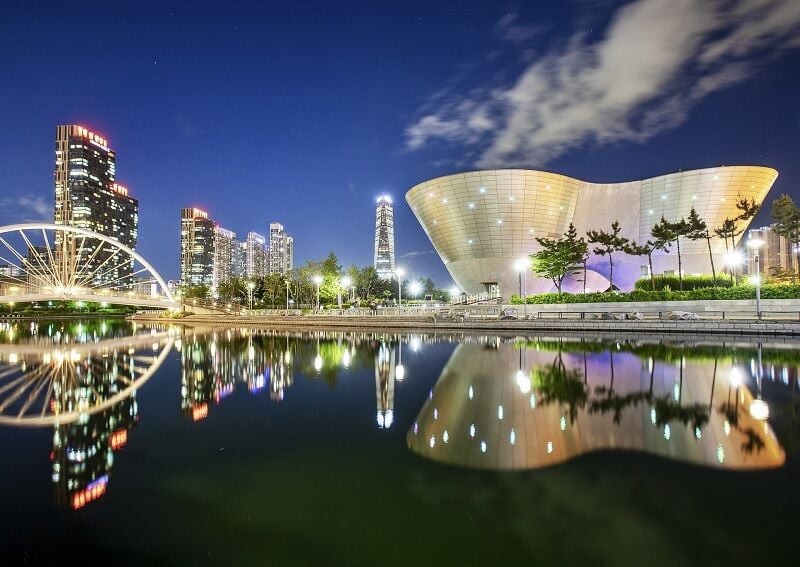Thailand’s emerging innovative towards smart city development

Envision a metropolis that not only embodies the concept of smartness but also intelligent and innovative sophistication. This city incorporates a flawless fusion of advanced technology, sustainable practices, and an enhanced quality of life. This futuristic paradigm is now the established vision for Thailand’s urban evolution. The nation’s Board of Investment is firmly committed to transforming Thailand into a dynamic nucleus of smart cities, these spaces intend to augment everyday life with progressive technology and eco-friendly solutions.
The smart city Initiative transcends mere vision it is an action-oriented strategic plan in meticulous execution. Stimulated by attractive incentives, an audacious objective has been set to establish 105 smart cities across pivotal urban centres by 2027, positioning Thailand at the vanguard of this urban revolution in Asia.
The initiative encompasses various elements, ranging from smart industrial parks to smart city system development the focus is on cultivating aspects such as smart environment, smart mobility, smart inhabitants, smart living, smart economy, smart governance, and smart energy. This represents a vision for cities that exceed the parameter of smartness and are indeed, profoundly intelligent. This transformative endeavour is materializing in the present, within the realm of Thailand.
Overview of Thailand’s smart cities

The concept and development
Thailand’s smart cities represent the country’s commitment to leveraging modern technology and innovation. It’s a part of a sustenance and intelligent scheme to boost the efficiency of provided services. Initially established by the Office of The National Economic and Social Development Council and digital economy promotion agency on October 15, 2017, the development of smart cities aligns with the country’s national developmental roadmap. The aim of these projects is to ensure that Thailand’s urban growth aligns with the Thailand 4.0 initiative and a 20-year national strategy.
The smart city initiative spans multiple aspects, including transportation, environment, energy, and more. The strategic plan includes several notable projects, for instance, a 3.7 billion dollar smart city project in the Huai Yai subdistrict of Chonburi province, a vital industrial area near Bangkok.
Key objectives and policies
The primary objectives driving Thailand’s smart city initiative hinge largely on improving public life and addressing the challenges city dwellers face daily. Authorities utilise Big Data solutions to improve urban living quality and tackle issues such as traffic congestion, environmental pollution, and safety surveillance monitoring.
Financial incentives serve as a part of the strategic policies aimed at expediting smart city development in the country. Businesses investing in smart cities stand to enjoy significant tax cuts. For instance, a 50% decrease in corporate tax spans three years. Furthermore, goods or services businesses procure via digital platforms under the smart city initiative are 100% tax-deductible.
Thailand’s smart city development goes beyond fiscal growth, focusing on creating a sustainable, innovative, and technologically advanced urban environment, enriching the lives of inhabitants and creating a road map for a digital future.
Key features of smart cities in Thailand

Within Thailand’s smart cities, two noteworthy features dominate. These include the Internet of Things integration and focus on environmental monitoring and sustainability.
Internet of things integration
IoT serves as an essential player in Thailand’s strategy of smart cities. IoT integration has greatly amplified the town’s network connectivity. For instance, the first fully functioning 5G-based smart city in Ban Chang, Rayong province, exemplifies the successful rollout of IoT technology. This collaborative endeavour by National Telecommunications and 5GCT network software provider mavenir and cisco systems Thailand has allowed town authorities to access real-time environmental data, 5G smart pole system traffic, drone data, and surveillance data for immediate interventions enhancing public life significantly.
Environmental monitoring and sustainability
Smart cities in Thailand aren’t solely about technology integration. While they employ IoT and other technologies to improve urban services efficiently, the focus on environmental monitoring and sustainability is equally firm. These smart cities are being developed under robust sustainability goals to tackle everyday environmental issues. For example, authorities capture real-time environmental data, which helps in making immediate interventions when required. This crucial aspect of environmental monitoring aligns with the sustainable and responsible vision of a smart city.
Case studies of smart cities in Thailand

Thailand’s smart cities encompass integrated technology in urban settings, focusing on improving citizens’ quality of life. The ambition to become a smart city hub by 2027 has led to some thriving cases worth examining.
Innovations in ban chang
Ban Chang is a quintessential example of innovation in Thailand’s smart cities. It’s known for a successful rollout of a fully functioning 5G-based smart city. Integrating the Internet of Things technology has been transformative here. The authorities now enjoy real-time data access, enabling quick decision-making, thereby enhancing public life. Ban Chang’s success story with IoT has set a high standard, offering a blueprint for other Thai cities to follow in their journey towards smart progression.
Technology integration in urban planning
Technology integration in Thailand’s smart cities is not limited only to communication and data transmission. It also extends to urban planning. For example, 36 municipalities across 25 provinces have been certified as smart cities. They’ve seamlessly integrated Big Data solutions into public sector functions to address everyday issues. This integration has improved the delivery of public services, reduced citywide expenses, and optimised resource use.
Crucially, technology is not viewed as a stand-alone solution but is incorporated strategically within a wider sustainable vision. For instance, environmental monitoring mechanisms are continually employed. These allow for real-time data on environmental conditions, enabling immediate interventions based on empirical evidence. It’s a prime example of how Thailand’s smart cities are marrying technology with sustainability for an efficient urban future.
Challenges and opportunities
The integration of novel technologies and innovations into urban living offers a unique set of challenges and opportunities. I propose that we examine how Thailand’s advanced urban ecosystems, formally referred to as ‘smart cities’, are proficiently navigating this intricate sphere.
Addressing urban challenges through technology
Thailand’s smart cities harness technology in ingenious ways to address urban challenges. For instance, they use Big Data to manage complex urban operations efficiently, reduce costs, and enhance resource management—one achieves optimal service provision and environmental sustainability.
For instance, they employ environmental monitoring systems that trigger timely interventions based on real-time data. This agility is essential in managing urban spaces efficiently and preserving natural resources. With these tech-infused initiatives, Thailand’s smart cities are turning urban challenges into opportunities for sustainable development.
Future prospects for expansion and improvement
The rapidly evolving technological landscape presents limitless possibilities for smart city initiatives. Cloud-based technologies, IoT, AI and Big Data are powering Thailand’s next wave of smart cities centred on comprehensive service provision, economic prudence, and environmental safeguarding. These strategies, in concert with the nation’s commitment to technological growth and sustainable urban planning, signal a promising future for Thailand’s smart cities. These plans entail the potential to shape an improved blueprint for urban spaces worldwide an optimistic outlook that invites participants globally to contribute and learn from their trailblazing approach.
So, have you heard about Thailand’s big plan to become a smart city hub by 2027.They’ve got this meticulously crafted strategy focused on tech, going green, and making life better and innovative for everyone. This isn’t just a pipe dream – they’re seriously committed to taking advantage of high-tech stuff like the Internet of Things, Artificial Intelligence and Big Data. All this is geared towards making their cities sustainable and future-ready. In other words, their smart cities aren’t just some fancy concept – they’re already being worked on, and they’re paving the way for a brighter, smarter, and downright better future for everyone.
Want to know more, The roadmap to a digital future in 2024. Thailand is on the brink of a digital revolution, set to redefine its economic landscape by 2024. With the government’s Thailand 4.0 policies fuelling this transformation, the nation is embracing a future where digital technology drives growth and innovation. It’s a strategic move to enhance operational efficiency and competitive advantage across industries, signalling a major shift towards a more digitally empowered economy
Latest Thailand News
Follow The Thaiger on Google News:


























